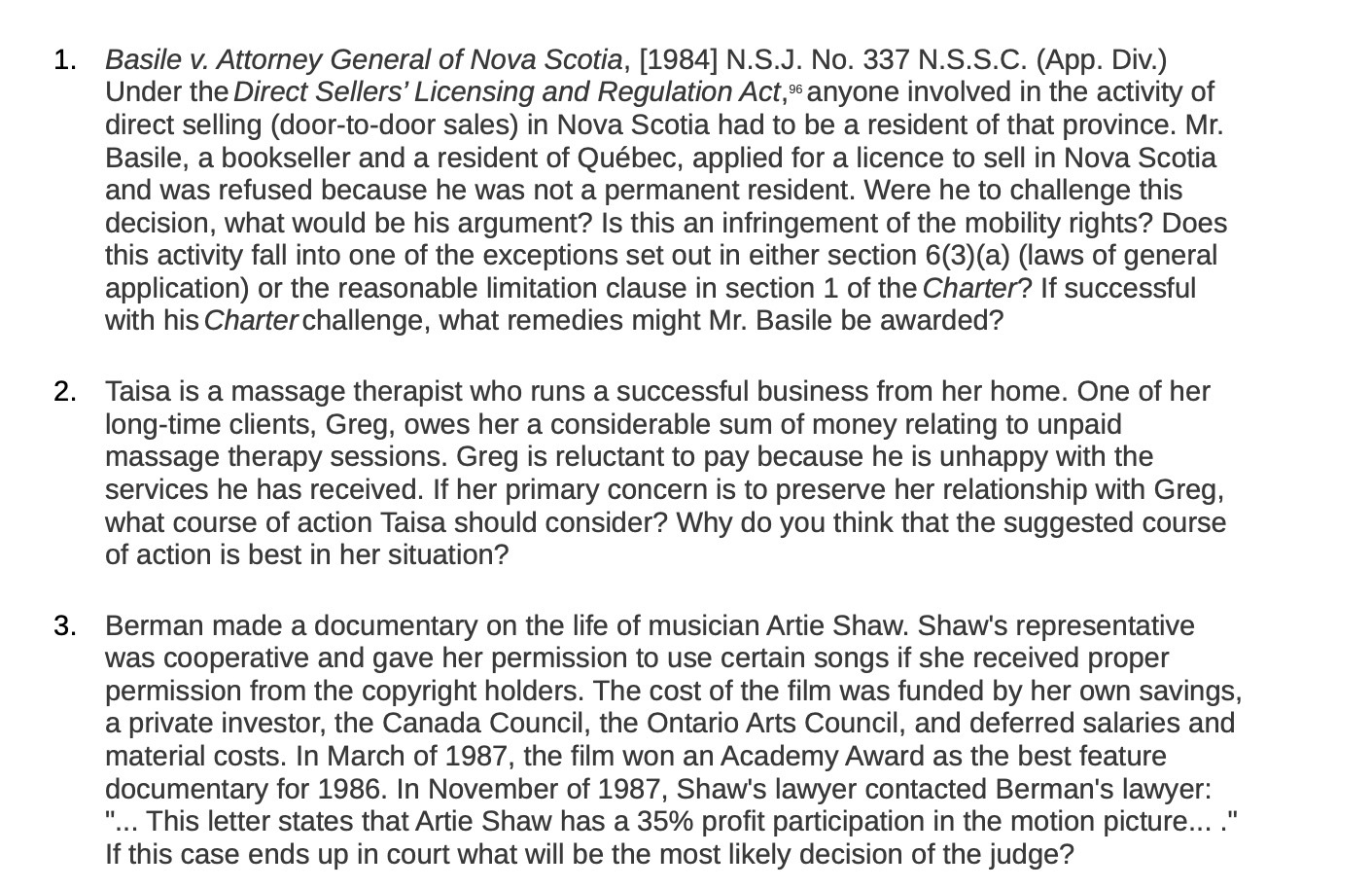Answered step by step
Verified Expert Solution
Question
1 Approved Answer
Basile v. Attorney General of Nova Scotia, [1984] N.S.J. No. 337 N.S.S.C. (App. Div.) Under the Direct Seilers' Licensing and Regulation Act, anyone involved in

Step by Step Solution
There are 3 Steps involved in it
Step: 1

Get Instant Access to Expert-Tailored Solutions
See step-by-step solutions with expert insights and AI powered tools for academic success
Step: 2

Step: 3

Ace Your Homework with AI
Get the answers you need in no time with our AI-driven, step-by-step assistance
Get Started


